Four Citizen Research Group leads sought for creative community activities, linked with the Liveprool irish Famine Trail.
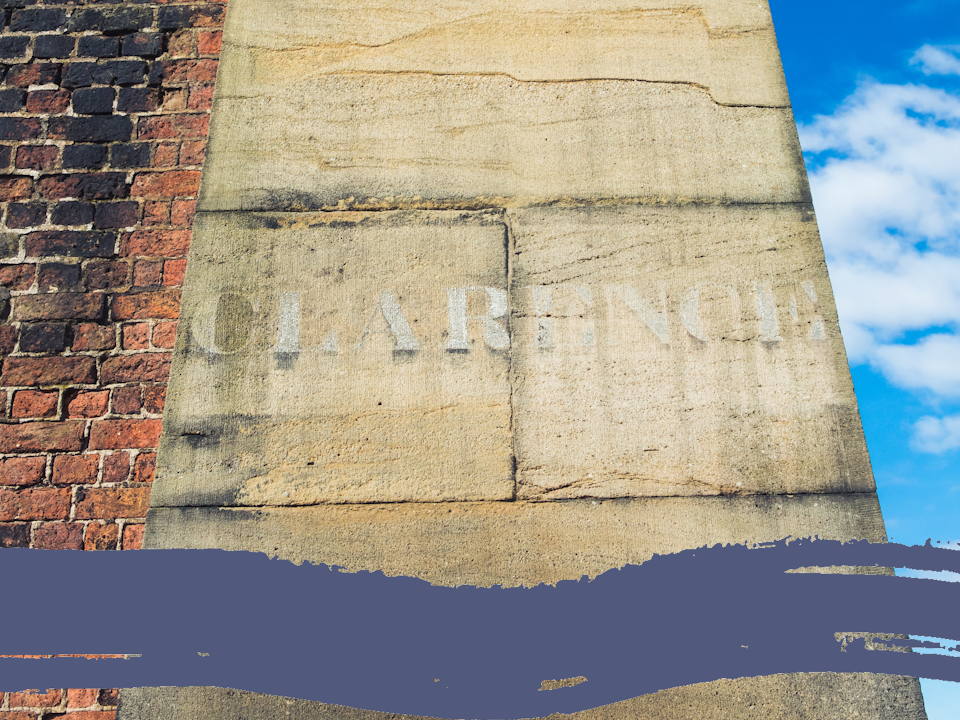

Four Citizen Research Group leads sought for creative community activities, linked with the Liveprool irish Famine Trail.

Last year TG4 joined us as a sponsor. We had so much fun with them that this year we decided to amp up the work and collaborate on two specific music events: Visible Women and Gradam Ceoil (Music Awards), both taking place at the Liverpool Philharmonic Music Room. Showcasing some of the most outstanding talent Ireland has to offer, TG4 are becoming known for their visionary approach to Irish language broadcasting, inclusion and accessibility. This assists not only with storytelling and talent development, but also keeping communities linked and connected with home. Below, TG4 tell us more about Gradam Ceoil and what it means to them …
TG4 are excited to work with #LIF2019 and specifically to present a very special concert (full details below) with some of the world’s most accomplished Irish traditional musicians, Conor Connolly, Clare Friel and Liam O’Brien, who have each been awarded the Young Musician of the Year award at Gradam Ceoil TG4 in 2019, 2018 & 2017 respectively.
Gradam Ceoil TG4 is the premier annual traditional Irish music awards scheme and academy. An independent panel of adjudicators selects recipients each year. Known as the ‘Oscars of Traditional Music’, national Irish language broadcaster TG4’s Gradam Ceoil awards are broadcast annually, with a live concert and ceremony, shining a spotlight on the crème-de-la-crème of traditional music and song, featuring musicians being recognised by their peers, with awards for their talent and contribution to traditional Irish music.
This special concert in conjunction with the Liverpool Irish Festival will bring a taste of Gradam Ceoil TG4 to Liverpool, showcasing three of the most exciting musical talents to come out of Ireland in recent years.
Conor Connolly hails from South Co. Galway. One of the most traditional and solid accordion players of his generation, he is an inspiration to many. An accordion player and singer, his music and song is rooted in his home county, with some of his main influences being Joe Cooley, Charlie Harris, P.J. Conlon and Tony Mac Mahon. His playing is full of heart and soul, with a great understanding and respect for the tradition and the players he learned from. Having played with some of the most renowned traditional musicians we have today, he is well respected by them and highly regarded amongst his peers. H ewon Young Traditional Musician of the Year, 2019.
Doireann Ní Ghlacáin hails from Dublin and is currently undergoing a PHD in Irish at NUIG. Her thesis is based on the sean nós songs of the Muskerry Gaeltacht, many of which were reintroduced into the modern tradition by her maternal grandfather, Seán Ó’Riada. Although an accomplished sean nós singer, having won many prestigious awards such as that of Oireachtas na Gaeilge, Glackin is better known for her fiddle playing. She learnt the fiddle from her father Kevin Glackin and has gone on to bring her music to the world stage in recent years. She has also performed on major traditional music broadcasts such as HUP, Béaloideas Beo and -of note- Tradfest TG4 a series, which she also presents.
Liam O’Brien is from Miltown Malbay. He was brought up in a very musical family. After starting on the tin whistle he went on to take up the concertina and attended classes with Noel Hill for many years. Liam then went on to study Irish Music & Dance in the University of Limerick. He has now travelled the world playing and teaching. He has been all across Europe, Africa and spent the summer of 2012 touring Japan. Liam also teaches concertina and banjo as part of the Brid O’Donohue School of Music where his popularity grows and grows. He won TG4 Young Traditional Musician of the Year in 2016.
As well as this outstanding concert, the three artists will share their talent with a pool of budding musicians in a set of free masterclasses, hosted as part of the Liverpool Irish Festival. Each will provide a bespoke workshop in fiddle, accordion and concertina, giving a select number of participants an opportunity to hone their skills under the guidance of these top class performers. Numbers are limited. To apply please email [email protected] quoting ‘TG4Masterclass’, providing your name, chosen session, skill level and key objective for the session.
If you are interested in attending the annual Gradam Ceoil TG4 awards, they will be presented at a live-televised gala concert at The Waterfront (Belfast) in Feb 2020, 9.00pm. You can make a full weekend of it, too, as a dedicated Gradam Fringe Festival brings Belfast alive in song, with a host of free music events and workshops taking place in various locations across the city. This event is not to be missed if Irish traditional music is your thing!
For more information, or to watch previous Gradam Ceoil TG4 awards ceremonies, go to www.gradam.ie and or follow us on Facebook and Twitter @GradamCeoil #GRADAM.
Tickets for the Gradam Ceoil TG4 at Liverpool Philharmonic Music Room on Tues 22 Oct are available from the venue direct liverpoolphil.com
We have a full programme of Gradam Ceoil TG4 events …
TG4’s Gradam Ceoil: An Irish Trad Night 22 Oct, 8pm-10pm, Liverpool Philharmonic Music Room. Doors 7.30pm
Gradam Ceoil masterclass: accordion 23 Oct, 12-1.30pm, Liverpool Philharmonic Dining Rooms
Gradam Ceoil masterclass: fiddle, 23 Oct, 1.30-3.00, Liverpool Philharmonic Dining Rooms
Gradam Ceoil masterclass: concertina, 23 Oct, 3-4.30pm, Liverpool Philharmonic Dining Rooms
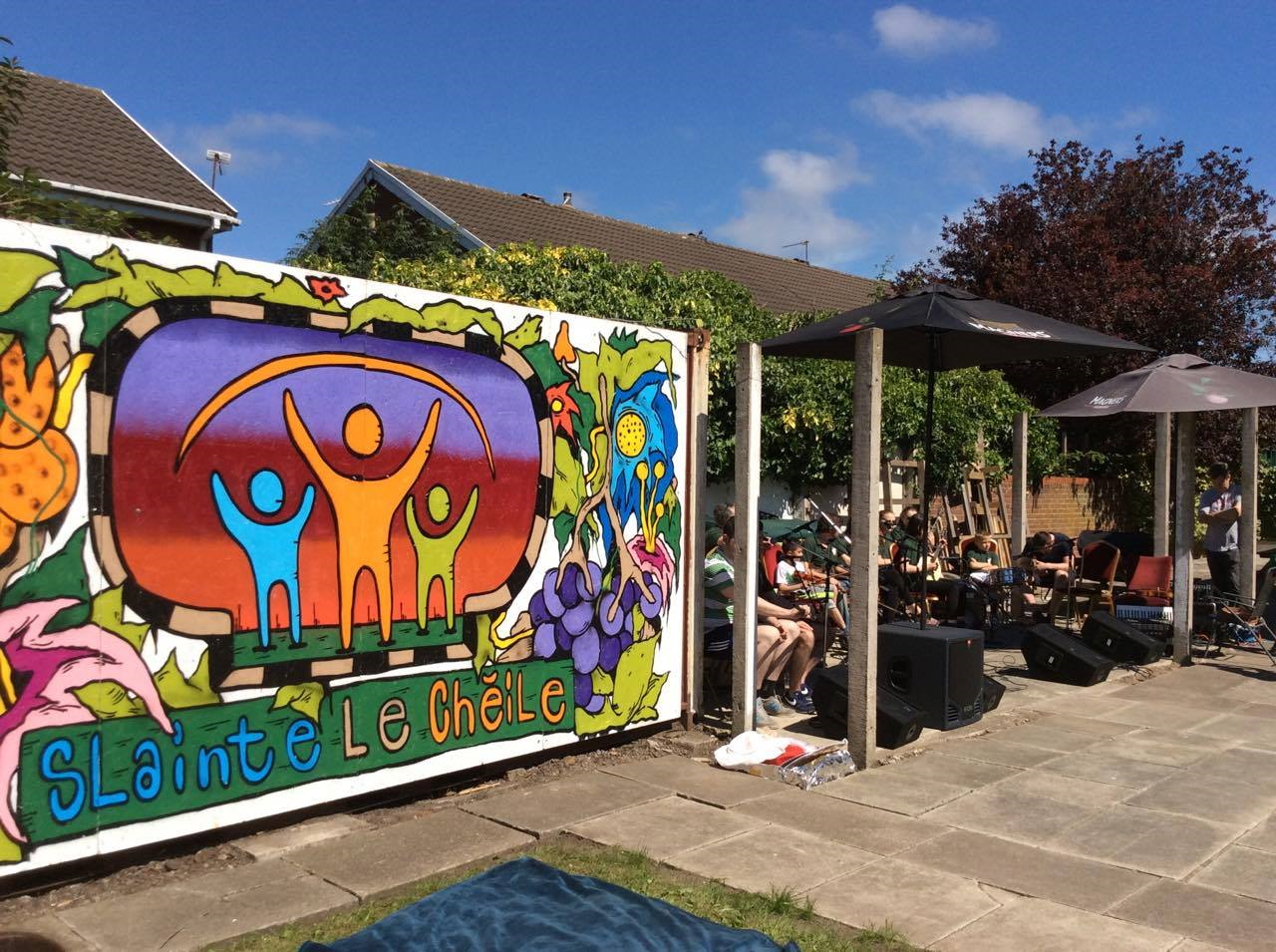
Each year the Liverpool Irish Festival takes work to the Liverpool Irish Centre; which we believe should be the spiritual home Liverpool’s Irish community. They are –and have always been- a significant partner of the Festival, providing a valuable social and civic centre and making people welcome year-round. We know the Centre runs a number of projects, sports occasions and festivities and so asked one of the Centre’s managers to give us a day in the life. Richie Billinge does just that…
Promoting Irish culture and providing a place for people to maintain a connection to Ireland is our founding motive. Throughout the week here you’ll find Irish music, dance and language lessons; social groups and those dedicated to improving health and wellbeing, whilst at the weekends we provide a warm and welcoming place to celebrate some of the things we love best: live music, sport and plenty of craic.
Monday evenings are dedicated to traditional Irish music, with the brilliant people of Comhaltas hosting lessons for youngsters on instruments ranging from the bodhrán to the harp. It’s a wonderfully welcoming atmosphere, not only giving children the opportunity to learn an instrument, but to forge lasting friendships.
The same goes for our weekly dance classes run by the Bolger-Cunningham School of Irish Dance, who not only develop children’s Irish dancing abilities, but assist them as individuals, building confidence and providing a place to meet and make new friends; giving them opportunities to take their dancing out to the wider world for special performances in Liverpool, Ireland and beyond.
One of our strongest connections to home is the Gaelic language. Each Thursday evening you’ll find enthusiastic groups of all ages and backgrounds studying Gaelic to maintain this critical link. Here at the Liverpool Irish Centre, we encourage it as much as possible with our Gaelic signage, and -hopefully in the months ahead- our new Gaelic Garden. Visitors are minded not to walk into the Fir (gents) if they mean to go to the Mná (ladies)!
It was the older generations that migrated in the 1950s and 60s to Liverpool who struggled against great adversity to establish the Liverpool Irish Centre in Mount Pleasant, and although we may be in a different building, you can find these stalwarts of the community here each week on Wednesdays and Thursdays for lunch clubs and afternoon tea dances.
This idea of community is the basis behind everything we do. Maintaining these social connections is very important for our society and for our community’s well-being. For a lot of people, we are their sole connection to home and we try to make it as genuine and special as possible with the likes of our Irish shop, selling goods and fresh produce imported from Ireland; bringing over their favourite singers, bands and acts -from The Whistlin’ Donkeys, Dervish, The Wolfe Tones and Sharon Shannon- and showing live GAA matches; sports that have a magical way of bringing Irish people together.
Our Sláinte Le Chéile (Health Together) project sees four regular events each week all designed to help boost our community’s mental and physical health and well-being. On Mondays, we have our health walk (and talk!) which involves a leisurely stroll around the lovely Newsham Park and then back here to the Centre for a well-earned cup of tea. On Tuesdays, our Cuimhne/Memories group -for those suffering from dementia and Alzheimer’s- meet up to listen to their favourite Irish songs, share stories of old, and enjoy lots of treats from home—Irish soups, biscuits and cake, to name but a few. Wednesdays are dedicated to our community garden which has been transformed by our hard-working volunteers from a forgotten wasteland into a beautiful environment, now home to a growing number of flowers, birds and insects.
*But* not only do we serve the Irish community, but the entire community of Merseyside and beyond. One morning we’ll have scores of young and enthusiastic children learning how to Irish dance, and in the afternoon we’ll play host to a cultural celebration from Sri Lanka, Nepal or the Philippines. Just as the thousands of Irish migrants to the city needed a place to meet and continue their strong connections with home, we offer the same to our diverse community of Nepalese, Tamils, Poles, Keralans, Filipinos and many more. We’re proud to be able to help these groups keep their community links burning bright, just as the Irish needed in the 1950s and 60s when they made the trip across the Irish Sea.
We’re never satisfied with the services that we offer. There’s always more to be done and this drives us to keep on looking for ways to serve the needs of our ever-growing and diverse community. It’s said that over three-quarters of those who live in Liverpool have roots in Ireland. If you’d like to find out more about your past we’d be delighted to help you out.
If you’re looking to get involved, either as a volunteer or participant or would simply like to come down and enjoy some live music and a cracking pint of Guinness™, then please get in touch! You can find us at liverpoolirishcentre.org, give us a call on +44 (0)151 263 1808 or email us [email protected].
Tá súil againn tú a fheiceáil go luath! We hope to see you soon!
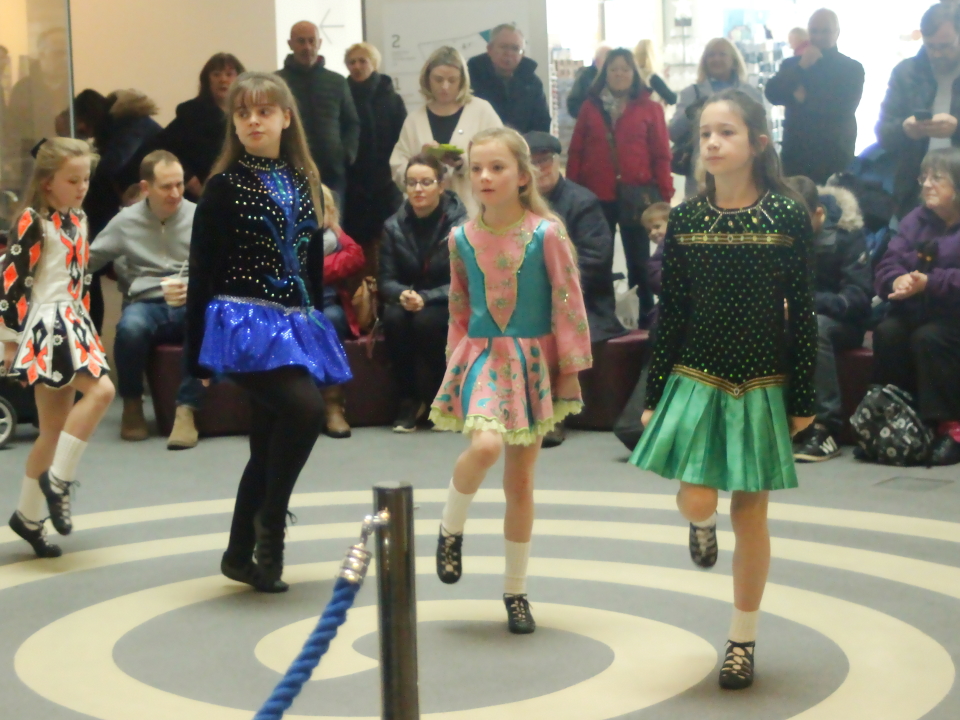
George Ferguson is a linchpin of the Liverpool Irish community, known to many Liverpool Irish families -across recent decades- for his work with hundreds (maybe thousands) of dancers. His school turns 40 years old in 2019 and in honour of this, we asked George to think about his journey to founding the dance school and what it has meant to him. George picks up the story…
In 1966, at the age of 11, I was taken to watch my sister attend her Irish dance class and unbeknown to me, my Mom supplied the two shillings and sixpence needed, to give me a lesson also. By the end of that lesson I could dance The Reel completely and to music! The dance teacher, Marion Turley told mom that I was ‘a dancer’ and, despite several efforts, I have never escaped since then. The Turley Academy is renowned worldwide for world champion dancers and produced Colin Dunne, nine times World Champion, who famously took over the lead in Riverdance, at two days’ notice, when Michael Flatley left.
Both of my parents are Irish; Dad from Fermanagh and Mom from Mayo, so all summers were spent between the two counties, but mostly in Mayo. As dancing was on both sides of the family it followed that we would continue the tradition.
I started the usual round of Feisanna (competitions) in the Midlands (as that was where I was born and brought up), Coventry specifically. Rising through the medals, I attended my first World Championships in Dublin, which was a terrifying but great experience. The following year I attended the All Ireland Championships (again in Dublin) and placed third. Later that year I won the Arch Bishop Langley Feis, defeating the reigning World Champion. In 1972 I returned to the Mansion House (Dublin) to win the World Championship for myself. Two months later I came to the Liverpool Feis and won the first of three consecutive Senior Championships victories there. Having completed my A-levels I gained a place at Liverpool Art College for a one year course. I fell in love with the city and have stayed ever since.
I obtained an art teaching position at Deyes High School (Maghull) and set up the dance class, having passed my Teagascoir Choimisiuin le Rinci Gaelacha (TCRG– essentially the Commission for certifying Irish dance teaching). I undertook my Irish Dance teacher exams in Dublin. In April 1979 -at St. Anthony of Padua, Mossley Hill, Queens Drive- I started with eight dancers on the first night and grew to 40+ quite quickly. We started attending Feisanna and eventually ended up with three classes across the city. We took teams and solo dancers to local Feisanna and National and World Championships in various venues throughout England and Ireland .
As the recession set in, parents were reluctant to attend the Feisanna due to the cost. We had a survey and decided that there were other aspects we were more interested in, rather than relentless competitions. We concentrated on shows, displays and exhibitions, ranging from TV appearances on programmes such as BBC’s A Question of Sport where we danced with John Aldridge, the Liverpool and Irish Republic footballer. Last year (2018) we performed at the Vince Power’s Liverpool Feis, an Irish music festival held at the Pier Head. Headline acts included Van Morrison, Shane McGowan and Liverpool’s own, Nathan Carter! More recently we performed at the Epstein Theatre with local musicians and the legend of comedy that is Jimmy Cricket in An Irish Hooley, a variety show that featured on the TV program The Irish in the UK. We have even danced for the Sunday Politics show, which must be a first for Irish dance!
As for me, I performed my last dance to celebrate 50 years of St. Patricks Day performances at the John Mitchell’s GAA presentation dinner dance at the Crown Plaza Liverpool, for the GAA President on 4 March 2017.
Irish dance has changed markedly over the years. Costumes, hair and steps have responded to the impact of shows, started by Riverdance. Some would say that since Irish dance is now not the sole domain of those of Irish descent or origin; that it has moved away from its roots and traditions. It has to be hoped that these traditions are not lost for the sake of progress!
From now on it’s over to the next generation of dancers and hopefully my daughter, Cecilia, will continue when I eventually leave off and keep the Ferguson School name going. I know it will be in good hands!
It has been an honour and a privilege to have been involved with generations of dancers and their families, through 40 years of the medium of Irish Dance.
To find out more information about George’s school and his classes, log on to Facebook and search for /George-Ferguson-School-of-Irish-Dance. Alternatively, you can call George direct, being mindful of standard working hours, on +44 (0) 777 188 4724.
George’s dancers will perform at 3pm at the Family Day (Museum of Liverpool) on Sat 26 Oct 2019. An anniversary celebration will also be held, in George’s honour, at the Liverpool Irish Centre on 11 Oct 2019

Liverpool’s cultural ties with Ireland come to the fore once again as the Liverpool Irish Festival returns, this year with special performances by The Guilty Feminist (in a dedicated festival podcast) and Kíla. We also celebrate a new partnership with Liverpool Literary Festival, the return of the Celtic Animation Film Festival and IndieCork and a new play by Lizzie Nunnery.
Taking place 18-28 Oct 2018 in venues across Liverpool, including Liverpool Everyman and Playhouse, FACT, Liverpool Philharmonic, St George’s Hall, the Florrie and the Victoria and Gallery Museum, the programme, curated by Festival Director Emma Smith and partners, explores the theme of ‘migration’. Artists, performers, musicians, writers and filmmakers explore the relationship between cultural identity and place and how Irish identity, in particular, is changing globally, affecting how we understand ‘Irishness’ in the 21st century.
The hugely successful podcast (30m+ downloads), The Guilty Feminist, comes to Liverpool Irish Festival as part of its In:Visible Women programme and for its first visit to the city. Comedian Deborah Frances-White records a live podcast in front of an audience at Liverpool Playhouse, discussing 21st century feminism and the paradoxes and insecurities which undermines it.
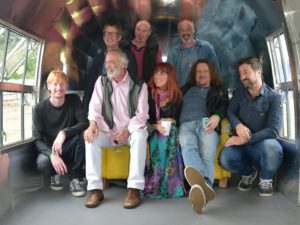
One of Ireland’s greatest music acts, Kíla, come to Liverpool Arts Club for a tub-thumping, rip-roaring, freewheeling jig of a gig. Supported by Bill Booth, Kíla’s eight members come from different musical backgrounds, including trad, classical and rock, which blend into the bands furiously energetic sound. It bristles with energy and passion and will be an unforgettable night.
At the Everyman Theatre, Lizzie Nunnery presents her new play with songs, To Have to Shoot Irishmen, exploring the events around the death of Francis Sheehy Skeffington during the Easter Rising in Dublin, 1916. Directed by Gemma Kerr (Hitting Town, Southwark Playhouse) and produced by Lizzie Nunnery’s Almanac Arts, the play runs for three nights (25-27 Oct).
For the first time, Liverpool Irish Festival unites with Liverpool Literary Festival, celebrating the writers, both emerging and established, who continue Ireland’s rich literary heritage. Events include Eamonn Hughes’ fascinating exploration and reflection on his work with Van Morrison, navigating the songwriter’s representation of Belfast. This is a joint event with The Institute of Irish Studies.
At one of Liverpool’s newest venues, OUTPUT Gallery, an artist will create a new work responding to the successful repeal of the Eighth Amendment of Ireland’s Constitution, granting new body autonomy in Ireland. The exhibition will run for the duration of the festival part of the In:Visible Women strand.

Call to artists for work responding to Ireland’s Repeal the Eighth movement and historic referendum vote, leading to 2018 exhibition at OUTPUT gallery.
Liverpool Irish Festival (LIF) and OUTPUT gallery have partnered this year to commission an artist to respond to the successful repeal of The 8th Amendment of the Constitution of Ireland, which now allows the government to legislate for abortion and grants new body autonomy to people in Ireland.
We are inviting exhibition applications from Liverpool, Liverpool Irish, and Irish creatives born or based in Merseyside working in the visual arts, performance, film or any other media. With such a powerful subject at the heart of the exhibition, applicants might choose to make work about the historical consequences of the 8th Amendment, its emotional impact, empowerment, agency, or the cultural shift the repeal marks.
The exhibition will run 18-28 October 2018, the entirety of this year’s LIF, which is the largest and most diverse showcase of contemporary and traditional Irish arts and culture in the UK. The selected artist will receive £300 and OUTPUT gallery will cover the technical production of the exhibition, which will be promoted by LIF.
To apply, please send your idea for the exhibition, details, and any images of previous work to [email protected]. This open call will close midnight of Fri 31 Aug 2018. OUTPUT gallery will be wheelchair accessible but the bathrooms are not. Please get in touch if you have any questions relating to the brief or any access requirements.


To Have to Shoot Irishmen, a play written by Lizzie Nunnery -and produced by her company Almanac Arts– will feature as part of #LIF2018.
It will be the fourth siginificant piece of Lizzie’s work that LIF has shown in 10 years. So where did it all begin, where might it go and what has changed? We asked Lizzie (LN) to reflect on her friendship with us and what she thought about it all…
Over to Lizzie:
Over the past decade, Liverpool Irish Festival has been a good friend to me. An inspiring and supportive friend… but also a challenging one… The kind of friend that walks you to the edge of a cliff and says ‘jump’, but then gently reminds you that you’re wearing a parachute.
In 2008, the year of Capital of Culture, I was an enthusiastic and wide-eyed playwright and songwriter, fresh from my first production at the Liverpool Everyman. The play was called Intemperance, about an impoverished Liverpool Irish family and set in 1854 and had drawn the attention of then Festival Manager, Jake Roney. He met me in the charming noise of the old Everyman Bistro. With characteristic directness he asked me if I’d like to be Artistic Director of a multi-disciplinary arts event in the Concert Room at St Georges Hall.
I’d never been Artistic Director of anything in my life, but that didn’t seem to bother him. He wanted me to curate a night of dance, drama and live music about the links between Liverpool’s black and Irish community. His working title – taken from signs that used to hang outside pubs and boarding houses as late at the 1960s – was No Blacks, No Dogs, No Irish. I was probably a little bit flattered, and a little bit naive, but mostly I was excited by the possibilities. So, over a couple of pints of Guinness(TM), the deal was struck.
What followed was a very intense few months – on a punishing learning curve – bringing together a group of ground breaking artists from disparate backgrounds; creating conditions for them to collaborate, shaping a night that would hit the audience in the head and the heart. So many moments from the night still burn in my mind. It wasn’t slick and it wasn’t polished, but it was full of feeling and ideas. Liverpool singer songwriter Ogo slayed the crowd with a rendition of a heartbreaking original song. Actress Ashing Leyne delivered a fierce performance of a new short play about the racist murder of black sailor Charles Wootton in Liverpool in 1919. Dancers Ithalia Forel and Maria Malone from Movema UK combined traditional Brazilian and Irish dance into a new piece of choreography performed to a soundtrack of percussion and spoken word. It was astounding how eclectic and yet cohesive it all felt. I remember sitting in the audience feeling breathless as I watched the dance piece. When the dancers stopped moving the room kept on spinning around them. So much felt suddenly possible as an artist in Liverpool in 2008 and Liverpool Irish Festival had truly invited me to the party.
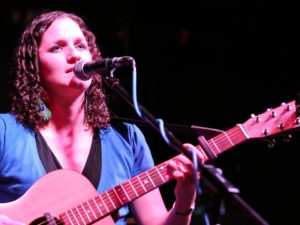
My friendship with the festival stayed strong over the years as an audience member. Each year I’d particularly look forward to the pub sessions and intimate unusual folk gigs. I loved how the festival reached in to the back snugs and social centres of the city as well as setting up camp in the shiny big spaces like FACT or the Philharmonic Hall.
Speaking of which… in 2010 came the second time LIF set me a frightening and wonderful challenge. The Irish Sea Sessions – thought up by then Artistic Director of the Philharmonic Hall, Simon Glinn, was part loose and lively session, part large scale gig. His plan was to bring together a big group of folk artists from both sides of the Irish sea; fifteen singers, guitarists, percussionists, pipe players, songwriters… All were to collaborate in a celebration of their shared musical culture and create a great big smasher of a gig. That I was one of those fifteen came as something of a shock. It was the kind of email I had to read and re-read. The list of other performers was formidable. Not only were there world-renowned players amongst them, but also the phenomenal ballad singer Niamh Parsons and Damien Dempsey, whose debut album I’d dissected endlessly through headphones as a student.
And I was going to rehearse with them; swap tunes with them; stand amongst them. No space for shyness. There was nothing for it but to step up to the challenge. It was one of the most tiring, exhilarating and educational weeks of my working life. By the end of it I was standing on stage at The Phil, leading a rendition of The Leaving of Liverpool, feeling as though I was flying; perhaps flying by the seat of my pants, but flying all the same. In a nice link, the original solo song I chose to perform was England Loves a Poor Boy, written for that St Georges Hall show back in 2008. When in 2012, I was asked to perform in the Irish Sea Sessions for a 2nd time there was a lovely sense of coming home; being welcomed back in.
And now in 2018 I stand poised to take another leap, with LIF there once again giving me that vital nudge. Having worked on my play with songs To Have to Shoot Irishmen for around a decade, it will be produced by Almanac Arts in association with LIF this autumn. The show opens in London (2 Oct) before coming to the Liverpool Everyman (26-27 Oct), just in time to join the fun of the festival.
Inspired by the true murder of Irish pacifist Francis Sheehy Skeffington by a British soldier during the Easter Rising in Dublin in 1916, the new play explores fractured national identity and the chaotic legacy of British military intervention. It’s a story that bridges the Irish Sea. It’s a show that draws together song, drama, storytelling; that asks important questions and doesn’t flinch. What better home for it than Liverpool Irish Festival?

For more on the play, click here.
almanacarts.wordpress.com | nunnerynorheim.com
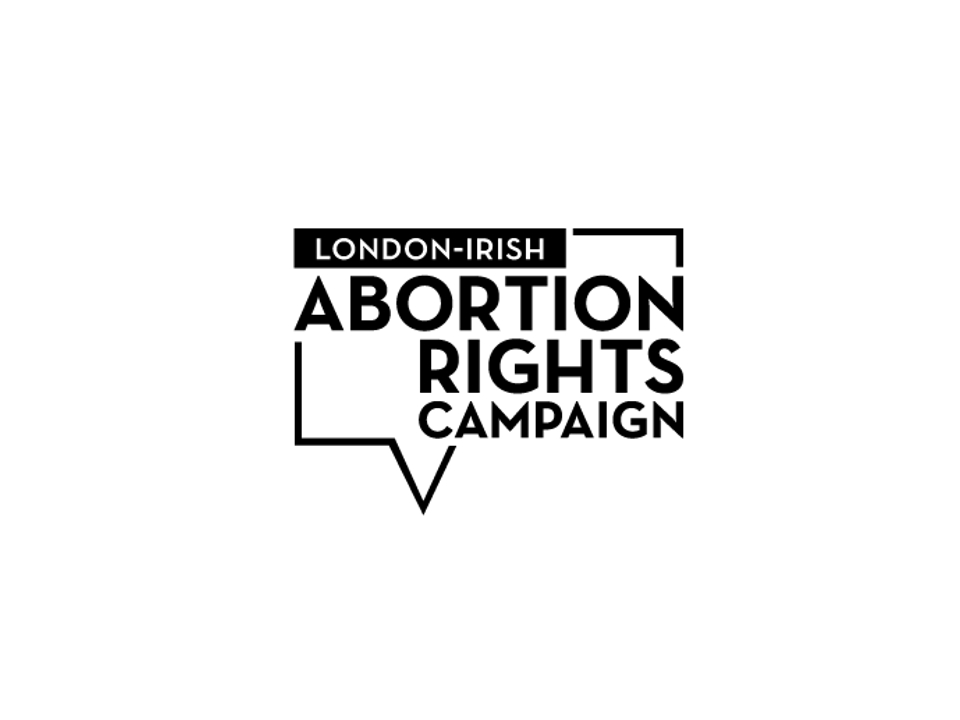
As regular readers will know Cara Sanquest of the London-Irish Abortion Rights Campaign introduced the Liverpool Irish Festival to this organisation and to the Abortion Support Network (see Mara Clarke’s piece, here). Cara also introduced us to Hannah Little, a London-Irish Abortion Rights Campaigner, from the Republic of Ireland. Here, Hannah tells us a little about how she became involved ahead, of her speaking at the In:Visible Women day (more details below).
* * * * *
The truth is I never really felt Irish until I left. Growing up I had not considered how my long red hair, thick Dublin accent and chatty demeanour would qualify me as a walking Irish stereotype. When I moved to London I learned the significance of my nationality in encounters with new friends and colleagues. What I saw simply as my personal characteristics – being friendly, sociable and a little forthright – others viewed as typical traits of “the Irish”. I was happy to discover that we were generally viewed quite positively. Before long, I became comfortable with the feeling that I embodied the idea that Ireland was a nation of lively, approachable people.
This new-found national pride was called into question when I heard about the death of Savita Halappanavar in 2012. Savita, a 31-year-old woman from Galway, had died from complications arising from a septic miscarriage after being denied an abortion. Following repeated requests for a termination, her husband and family were told it was not an option “because Ireland is a Catholic country”.
I felt the urge to gather with others and mourn her shocking and tragic death. Lighting a candle outside the towering grey Irish embassy in Knightsbridge, I was forced to reconsider the positive image of Ireland I was promoting abroad. If abortion is recognised as basic healthcare around the world, how could an otherwise healthy woman die in hospital in my home country? The enduring influence of Catholicism in Ireland had suppressed medical wisdom and as a result, Savita had died an entirely preventable death.
As support for a referendum on the issue of abortion in Ireland began to gather momentum, I decided that rather than watching from afar I would try to play my part abroad. In 2016 I was part of a team of Irish ex-pats who organised a London solidarity event on the day of the March for Choice in Dublin. Hundreds gathered outside the Irish embassy to send a clear message that the diaspora were also calling for a full repeal of the eighth amendment – a constitutional change that could enable increased access to abortion in Ireland.
I met a group of likeminded people that day and together we went on to form the London Irish Abortion Rights Campaign. Since then, our group has grown to over 1,500 members and boasts a team of over 60 volunteers working on a daily basis. We campaign for access to free, safe and legal abortions across the island of Ireland through fundraising, direct action, lobbying of politicians and building international awareness of the issue through the UK media.
With a referendum on the Eighth Amendment now imminent, the next few months are crucial for the Irish pro-choice movement. As we saw with the result of the referendum on same sex marriage, Ireland is ready to break free from Catholic conservatism and adopt the twenty-first century values of inclusiveness and acceptance.
Irish people do not need to identify as pro-choice to appreciate that current legislation is harming Irish women*. The United Nations has repeatedly stated that Ireland is in breach of human rights by denying its citizens access to basic healthcare. I hope that by voting for increased access to abortion, Ireland can go some way to redressing the tragic injustice of Savita’s death and no doubt countless others.
Only when Ireland allows women to have full control over their own bodies will I be proud to call it home again.
(*) trans, and non-binary people
The London-Irish Abortion Rights Campaign calls for the repeal of the 8th amendment from the Irish constitution (ROI) and campaigns for access to free safe legal abortion in Ireland and Northern Ireland. They are the London branch of the Abortion Rights Campaign in Ireland, and a member of the Coalition to Repeal the 8th Amendment. londonirisharc.com | repealeighth.ie | abortionrightscampaign.ie Handles: /londonirisharc /ldnirisharc
Abortion Support Network provides financial assistance and accommodation to those travelling from the Republic of Ireland, Northern Ireland and the Isle of Man for abortion procedures. Funding is available on a case by case basis, depending on financial need and availability of funding. Individuals are asked to contact ASN before booking travel as they can also advise on the least expensive clinics and methods of transport. ASN provide confidential, non-judgmental information to anyone who contacts them via phone or email about travelling to England for an abortion, as well as information about reputable providers of early medical abortion pills by post, which they also provide information on. asn.org.uk Press and non-urgent enquiries can be made to Mara Clarke, Founder and Director of ASN here:
Mara Clarke at [email protected] + 44 (0) 7913 353 530.
In:Visible Women takes place on Fri 27 Oct 2017, as part of /LivIrishFest at Central Library. Book tickets here:
https://www.liverpoolirishfestival.com/events/invisible-women-illuminating-debates/